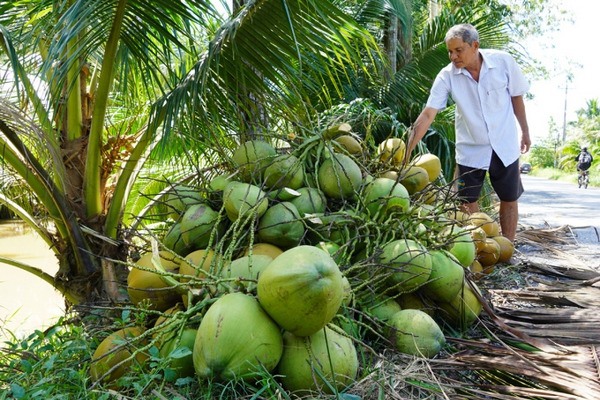As the coconut sector becomes a more prominent economic contributor in Vietnam's Mekong Delta and south-central coastal areas, its presence in billion-dollar markets like the U.S. and China is increasingly noteworthy. The Ministry of Agriculture and Rural Development reports that Vietnam, with over 200,000 hectares of coconut cultivation, now includes coconut as a key crop in its national industrial crop development program aiming for 2030. This strategic crop has seen a rise from US$180 million in export revenues in 2010 to $900 million in 2023, with expectations to breach the billion-dollar threshold by 2024. The ministry's goals focus on expanding the industry's scale and quality for worldwide market penetration.

Vietnam stands sixth in the global ranking of coconut production and exports, with an annual yield of nearly 2 million tons. The country's coconut products, notably for their meat and water content, exceed global averages, positioning Vietnam as a leader in quality and yield. The Mekong Delta's Ben Tre province, known as the coconut capital, plays a pivotal role, contributing 42% to the national coconut cultivation area. This shift from rice to coconut farming has significantly enhanced rural incomes, with Ben Tre's coconut exports projected to hit $500 million in 2024.
The Chinese market presents a substantial opportunity for Vietnamese coconuts, driven by high demand for various coconut products. Proximity and free trade agreements between ASEAN and China give Vietnam a competitive edge. With China's annual consumption at around 4 billion coconuts and domestic production falling short, Vietnam is well-positioned to meet this demand.
Experts stress the importance of stringent production and export management to sustain the sector's growth. The recent approval of Vietnam's fresh coconut exports to China underscores the need for cooperation between government bodies and producers to uphold production standards and combat fraud. Enhancing the economic value of coconuts, through both fresh exports and by-products like coir and activated carbon, is crucial. Investments in quality coconut varieties and a robust processing industry, alongside infrastructure improvements in rural areas, are essential for reducing intermediaries and strengthening the supply chain, ultimately benefiting farmers and the industry at large.
Source: VNExpress
